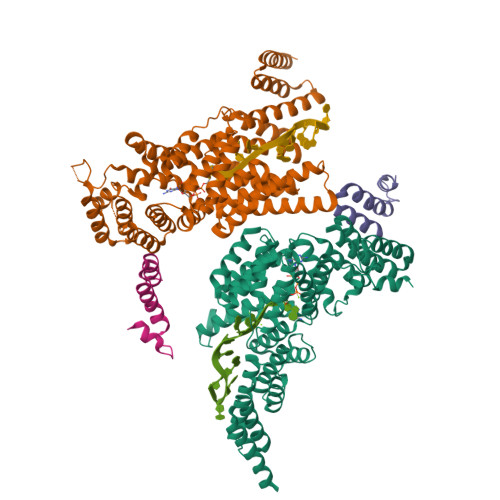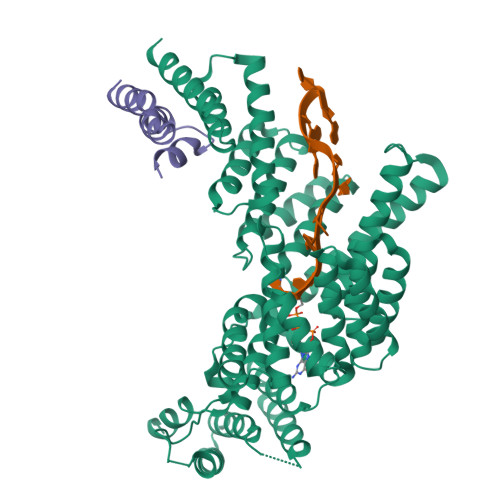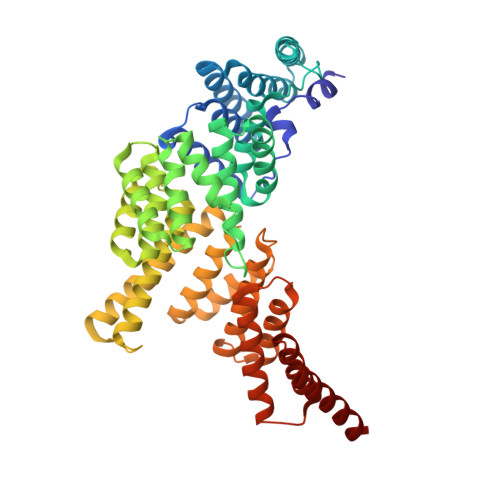Human IFIT3 Modulates IFIT1 RNA Binding Specificity and Protein Stability.
Johnson, B., VanBlargan, L.A., Xu, W., White, J.P., Shan, C., Shi, P.Y., Zhang, R., Adhikari, J., Gross, M.L., Leung, D.W., Diamond, M.S., Amarasinghe, G.K.(2018) Immunity 48: 487-499.e5
- PubMed: 29525521
- DOI: https://doi.org/10.1016/j.immuni.2018.01.014
- Primary Citation of Related Structures:
6C6K - PubMed Abstract:
Although interferon-induced proteins with tetratricopeptide repeats (IFIT proteins) inhibit infection of many viruses by recognizing their RNA, the regulatory mechanisms involved remain unclear. Here we report a crystal structure of cap 0 (m 7 GpppN) RNA bound to human IFIT1 in complex with the C-terminal domain of human IFIT3. Structural, biochemical, and genetic studies suggest that IFIT3 binding to IFIT1 has dual regulatory functions: (1) extending the half-life of IFIT1 and thereby increasing its steady-state amounts in cells; and (2) allosterically regulating the IFIT1 RNA-binding channel, thereby enhancing the specificity of recognition for cap 0 but not cap 1 (m 7 GpppNm) or 5'-ppp RNA. Mouse Ifit3 lacks this key C-terminal domain and does not bind mouse Ifit1. The IFIT3 interaction with IFIT1 is important for restricting infection of viruses lacking 2'-O methylation in their RNA cap structures. Our experiments establish differences in the regulation of IFIT1 orthologs and define targets for modulation of human IFIT protein activity.
Organizational Affiliation:
Department of Pathology & Immunology, Washington University School of Medicine, St. Louis, MO 63110, USA.




















